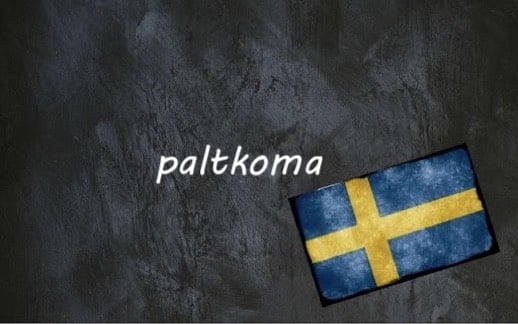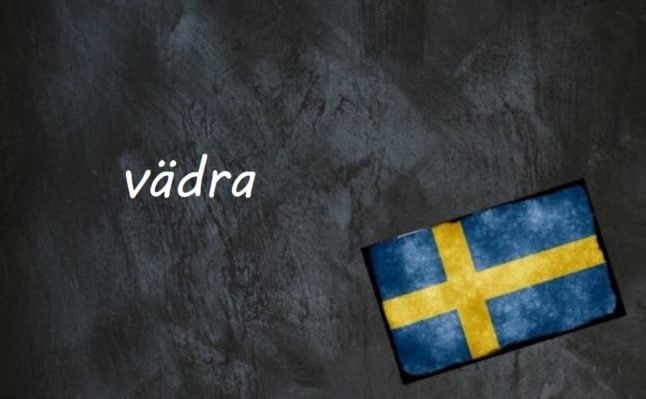Paltkoma is the tiredness and sense of weakness which befalls someone who is very full after a hearty meal. A food coma.
What is palt? Palt is a famous Swedish traditional dish, more common perhaps in the northern parts of the country. Palt comes in different forms, some with different regional names like kams, klubba, klåbb, klöbba.
The more ‘normal’ palt is a type of meat-filled potato dumpling. Traditionally served with butter and some form of lingonberry preserve, but also a glass of cold milk. There is even a variant made of blood, which can be anything from pig’s blood to reindeer’s blood, and is known as blodpalt.
The -koma in paltkoma is simply ‘coma’.
Paltkoma is a very new word, only attested since 1996, and surely derived from the English ‘food coma’. In fact, matkoma is the more common form, which is a literal translation of ‘food coma’.
Another little gem some people use with the same meaning is rotvälta, a word normally used to describe a fallen tree that has it roots ripped up and exposed, what in English is called a ‘windthrow’. In this sense, however, rotvälta would imply a matkoma from eating a lot of potatoes, or other roots, since it literally means ‘root fall’ or falling over from roots.
Though paltkoma is a very new word, Swedish does have an older word for the same phenomenon: dästhet. But try saying you feel a bit of dästhet coming on to your Swedish friends, and many, if not most of them, will either ask you what you mean, or tell you that whatever it is you are saying is not a Swedish word. At that point, you can dazzle them with your newfound knowledge.
Should you want to take it to the next level, there is a scientific term for this condition, it is called ‘postprandial somnolence,’ in Swedish: postprandiell trötthet. Although the exact causes of the phenomenon are not known, two characteristics are well established: You feel low in energy and sleepiness, somehow related to the activation of your parasympathetic nervous system after having ingested food.
What is the parasympathetic nervous system you ask? Well, according to the National Library of Medicine, an American governmental site, ‘the parasympathetic nervous system predominates in quiet ‘rest and digest’ conditions while the sympathetic nervous system drives the “fight or flight” response in stressful situations. [Its] main purpose is to conserve energy to be used later and to regulate bodily functions like digestion and urination.’
Important to note here is that being stricken with a paltkoma is absolutely natural. In fact, it is a widespread phenomenon in the animal kingdom, where even such simple lifeforms as nematodes experience it (perhaps not from palt though).
You will surely experience a proper paltkoma if you are enjoying the more traditional type of Swedish Christmas dinner this year, so the best of luck for dealing with it.
We leave you with a few tips provided by health website Healthline: eat modest portions, choose balanced meals, limit your alcohol intake, stay hydrated, use bright lights, get a good night’s sleep, and if all else fails, throw in the towel and take a quick nap.
Example sentences:
Älskling, hjälp, paltkoma!
Honey, help, palt coma!
Visste du att den vetenskapliga termen för paltkoma är postprandiell trötthet?
Did you know that the scientific term for a ‘palt coma’ is postprandial somnolence?
Villa, Volvo, Vovve: The Local’s Word Guide to Swedish Life, written by The Local’s journalists, is now available to order. Head to lysforlag.com/vvv to read more about it. It is also possible to buy your copy from Amazon US, Amazon UK, Bokus or Adlibris.



 Please whitelist us to continue reading.
Please whitelist us to continue reading.
Member comments